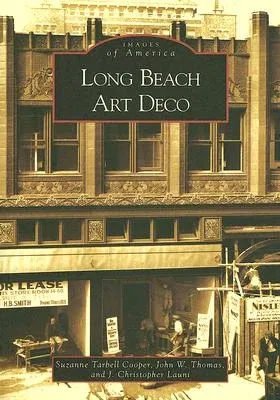Suzanne Tarbell Cooper
(Author)Long Beach Art DecoPaperback, 28 August 2006

Qty
1
Turbo
Ships in 2 - 3 days
In Stock
Free Delivery
Cash on Delivery
15 Days
Free Returns
Secure Checkout

Part of Series
Images of America
Part of Series
Images of America (Arcadia Publishing)
Print Length
128 pages
Language
English
Publisher
Arcadia Publishing (SC)
Date Published
28 Aug 2006
ISBN-10
0738546704
ISBN-13
9780738546704
Description
Product Details
Book Format:
Paperback
Country of Origin:
US
Date Published:
28 August 2006
Dimensions:
23.57 x
16.56 x
0.99 cm
ISBN-10:
0738546704
ISBN-13:
9780738546704
Language:
English
Location:
Charleston, SC
Pages:
128
Publisher:
Weight:
322.05 gm